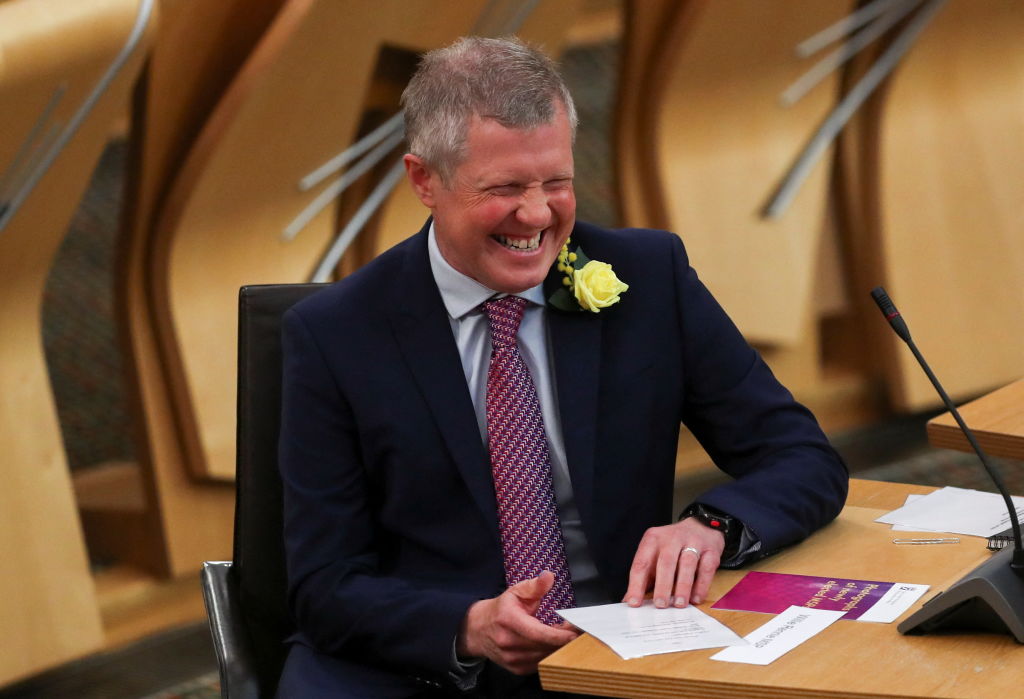I announced my candidacy for the leadership of the Scottish Liberal Democrats this week and am under no illusions of the task ahead of me should I take the helm.
In the aftermath of the coalition there was a real risk that the Liberal flame could flicker out. But with hard work, my colleagues and I have succeeded in turning our constituencies into fortresses. We have Willie Rennie to thank for that in large part. In his decade in charge of our party, Willie has gained a personal affection among the public with his colourful photo opportunities and the most recognisable smile in Scottish politics.
When I think of Willie’s style, I’m reminded of the film, Fire in Babylon, about the rise of the West Indian cricket team in the 1970s. For decades, the West Indies were well liked but had been considered sideshow entertainment and purveyors of ‘calypso cricket’ in the cricketing world. They certainly didn’t win many trophies. Then one day they introduced the world to a new style of fast bowling and started breaking jaws. They went on to dominate the game for 20 years.
With the photo-ops and Willie’s likability, the Scottish Liberal Democrats have been the calypso cricket of Scottish politics over the past decade. That kept us alive, but now it’s time for us to bring on the fast bowlers.
The eyes of the SNP government are always on another prize
I think we’re pushing on an open door.
The SNP has been kept in power by the unifying effect of the independence cause. Remove that and the edifice of that power is built on sand. The truth is that, were it not for her daily primetime briefings and the promise of an imminent referendum to keep the independence troops marching, Nicola Sturgeon and the SNP would likely already be in electoral decline. After more than 14 years of stagnant government they deserve to be.
The fixation on the constitution among SNP ministers has made them negligent in delivery of effective government and there are warning lights blinking across the dashboard of public policy. The gap in educational attainment between rich and poor is devastating, thousands of children are waiting more than a year for first-line mental health treatment and Scotland’s drug death rates are the worst in the developed world.
The eyes of the SNP government are always on another prize. It’s the reason that party exists, but being unequal to the challenges of the day will always catch up with you as more and more people see and feel the impact of ministerial disinterest.
So, if there are more days in power behind the SNP than there are in front of them the question is, what comes next?
It’s difficult to see that, for all the questions Scotland’s opposition parties face, the answer to any of them lie with Douglas Ross. He lacks the transcendent charisma, the unifying quality and the energy of Ruth Davidson. He has upset centrist Conservatives in Scotland by backing cuts to foreign aid and defending the worst aspects of the Brexit deal fallout. His bullish, acerbic style brooks no compromise on how we make the case for Scotland’s continued membership of the United Kingdom and that causes me real anxiety.
The Union is in peril and I am 100 per cent committed to its survival because I know what it can achieve. There is no better example than the NHS and the world-class care it provides us all for free. As such, we cannot allow this debate to boil down to a choice between a bitter Conservative government and the SNP’s milk-and-honey vision of an independent Scotland.
We need to speak to a much broader church than those taking up pews to listen to Douglas. I know how to do that. In my time as a youth worker and children’s rights advocate at the sharpest end of our society, I learned how to connect with those who exist on the margins, the excluded and the crushingly disadvantaged. It’s how I’ve managed to persuade so many of them to leave their views on the constitution at the door and back me at the polls.
I’ve built a coalition of voters in West Edinburgh that has resoundingly rejected the SNP at every election since 2015. My challenge over the next five years, if I get the chance to lead, is to make those connections nationwide. To inspire belief in us again. I’ll aim to do that by reminding people of our unique offer: as guardians of civil liberties, pushing back on centralisation and state intrusion in people’s lives; a party of education and environmentalism without the baggage of nationalism (that, inexplicably, comes with the Greens); one that’s fiercely committed to social mobility, education and mental health.
If Scotland is to finally see that much-needed change in government, a revived Liberal Democrat group will be a mathematical necessity to making that possible. After everything we’ve been through, Scotland needs new hope, right now. Where that hope comes from may end up surprising everyone.






Comments